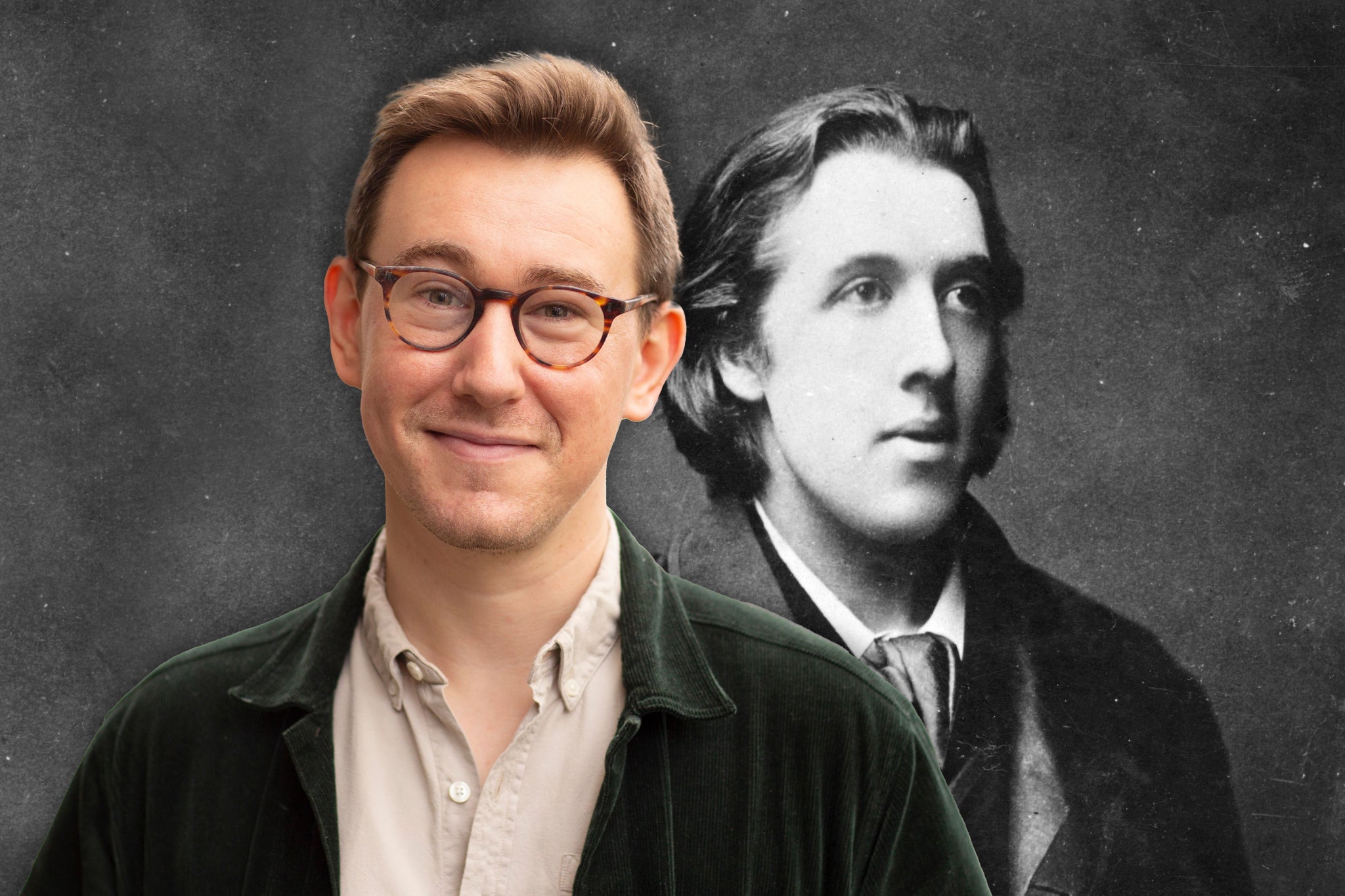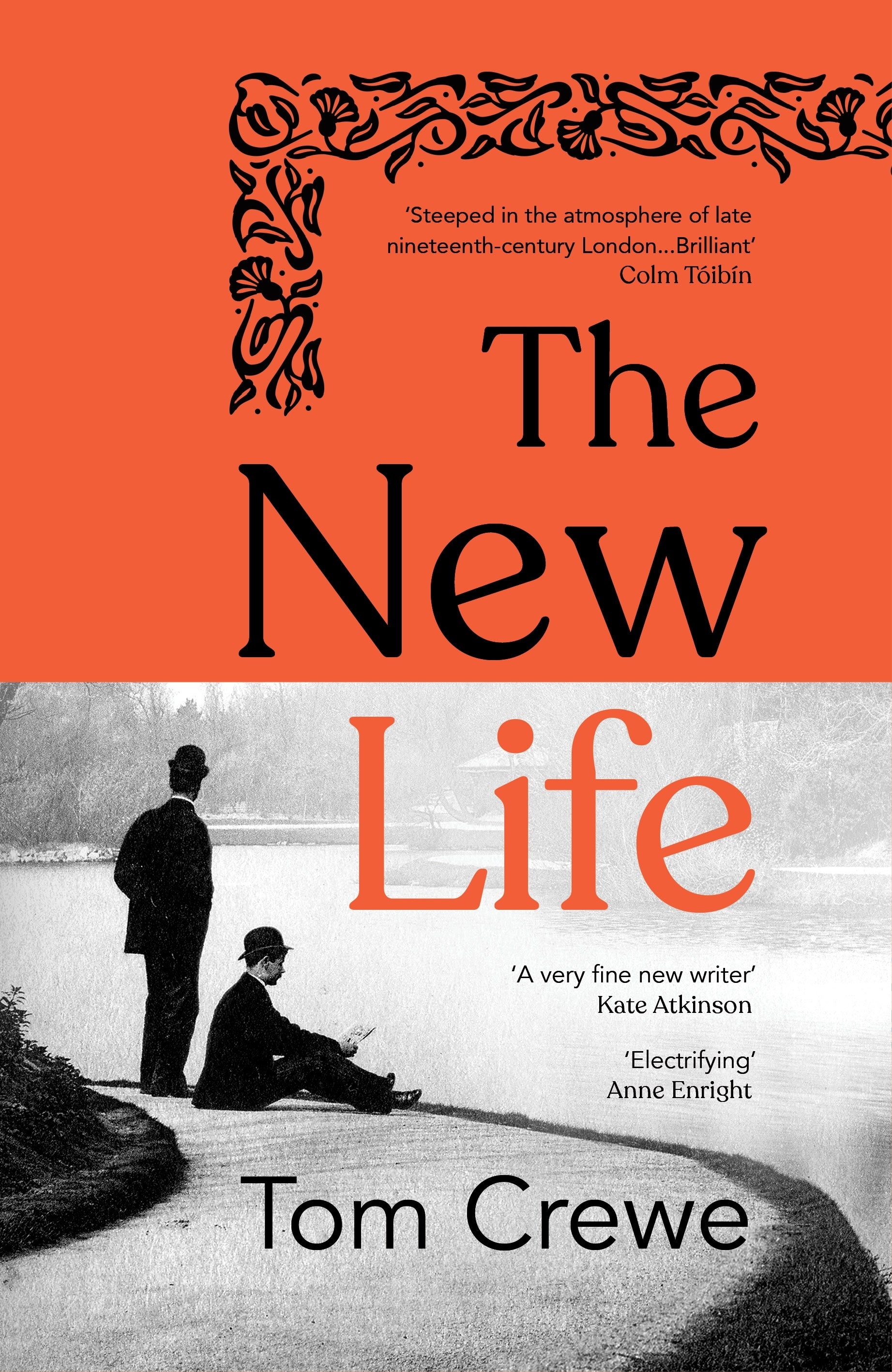Did Oscar Wilde set back the cause of gay rights? Author Tom Crewe on why the great playwright is no hero
The author of award-winning alternative history novel ‘The New Life’ tells Louis Chilton how Wilde’s trial set back a moment of optimism


Tom Crewe is not here to talk about Oscar Wilde. Yet he’s hard to ignore. The legacy of the beloved writer and poet – who was imprisoned in 1895 on charges of gross indecency – hangs over Crewe’s debut novel The New Life like a thick, grey cloud on the horizon. The book, an alternative history chronicling gay existence in Victorian England, was written in part as a corrective to some of the popular myths about The Picture of Dorian Gray’s author. A puncture to the great Wilde parade float.
“We fixate on the case of Wilde,” Crewe tells me. “He’s been elevated as this supreme gay martyr, a sort of gay grandfather figure for everyone. The more I thought about that, the more perverse it seemed – because, in a way, Wilde set back this moment. He helped destroy this optimistic moment of gay rights, because he got himself into a court case he didn’t need to get himself into [Wilde’s arrest followed a failed libel case against the Marquess of Queensberry, who had called him a sodomite] and then he stood up in court and denied being gay. He’s not an obvious hero in the story – and yet he’s been made one.”
Crewe researched the period intensively for the book, but he had a head start. The 34-year-old has a doctorate from Cambridge in 19th-century British history – and felt fleetingly destined to become a historian, before recoiling from the world of academia. We’re chatting now over Zoom, ahead of an event at the Henley Literary Festival on 30 September; it’s almost nine months since The New Life was published to rapturous reviews. The novel won the 2023 Orwell Prize for Political Fiction and the 2023 Southbank Sky Arts Award for Literature; days after we speak, Crewe was shortlisted for the Polari First Book Prize, billed as the UK’s only dedicated awards for LGBT+ literature.
The New Life takes place between 1894 and 1896 – the time of Wilde’s trial – and follows two writers, John Addington and Henry Ellis; both men are in strained and complicated marriages. Addington is gay, and has an affair with a man, while Ellis is straight but married to Edith, a lesbian. The two figures collaborate on a book, documenting and studying the lives and sexual behaviours of gay men at the time, titled Sexual Inversion (“inverts” being the parlance for gay people at the time). Ellis has his own unconventional sexual desires – a fetish for women urinating – but writes the book out of an attempt to understand his wife.
The New Life is a novel of big moral ideas, explored intelligently and understatedly; his dialogue is unshowy but credible, and loaded with meaning. The trial of Wilde comes into the novel, but only at arm’s length, filtered through the reactions of its lesser-known protagonists. “I wanted to show what it would look like if you pushed Wilde out of the centre of the story,” Crewe says. “What does the history of gay rights in Britain look like if Oscar Wilde is not the dominant figure?”
Addington and Ellis are both rooted in real-life writers: Havelock Ellis and John Addington Symonds, who really did co-author a book called Sexual Inversion, the country’s first medical textbook about homosexuality. Ellis was married to the writer and women’s activist Edith Ellis, who, like her fictional counterpart, was lesbian, while Symonds was married with children but also outspokenly gay. The title of Crewe’s novel derives from an actual organisation called the Fellowship of the New Life, a collection of social reformists. Which isn’t to say that the book is all facts. “Some of the reviewers didn’t seem to really recognise that the entire narrative is invented,” Crewe says. “The book begins in 1894 – the real John Addington Symonds was dead in 1893.”
Queer culture is moving into the mainstream. It’s also a moment of danger, too
Nonetheless, it was Symonds – a bold political reformist who circulated arguments against the criminalisation of homosexuality – who kickstarted Crewe’s interest in the subject matter. “I suppose it was his voice carrying across the centuries that really attracted me,” says Crewe. “I started from a position of outrage really, that someone as interesting as Symonds – making the arguments he was making, which are so modern and so comprehensible to us now – did not seem to be known and recognised. And I thought, why do I, as someone doing a PhD in 19th-century history, why do I not know about this man? And if I don’t know this figure, what does that say about people who’ve got better things to think about than 19th-century history?”
Sitting in front of a somewhat haphazardly stacked bookshelf, Crewe talks amiably but with a kind of slow consideration (and a faint hint of a North East accent – he was born in Middlesbrough). When he’s not writing fiction, he works as an editor for the London Review of Books; his brother Paddy is also a writer, who authored this year’s acclaimed American Gold Rush novel My Name is Yip. “Luckily no one seems to have made a big deal of it – we’re not competitive,” he insists.
The author Anne Enright has written that Crewe’s “forensic love of the physical puts the body back into the past”. The novel begins, for instance, with a sexual encounter between two strangers in a train carriage. Within a few pages, it becomes clear that what’s being described is in fact a wet dream. Those used to Victorian fiction of the more buttoned-down variety may be shocked by the explicitness with which sex is handled. The book’s vivid carnality wasn’t at the forefront of Crewe’s mind when he was writing The New Life, he says, but it’s an unmissable thread running through the novel. “The novel certainly is very concerned with the physical. It’s about physical desire, and what it means if we can or can’t express it – so that necessitated a focus on the description of sex.

“I think it says a lot about our relationship to the past that people find that so striking,” Crewe continues. “Because people do find it hard to imagine themselves back into physical bodies in the past. People think about clothes, buildings, ideas before they think about someone having an erection in 1894.”
Crewe steered clear of overt parallels with the 21st century but understands why the book has resonated so acutely with audiences now. “I think if we had pop feminism a few years ago, we’re now in a sort of pop queer thing, where queer culture is moving into the mainstream,” he says. “It’s also a moment of danger, too. People are aware that gay rights and women’s rights are under threat, in the States especially and parts of Europe. There are moments where progress stops, or is turned back – that’s seen in our lifetimes too.” The New Life is a story of people caged by the boundaries of their era, looking vainly towards some hoped-for better future – or actively trying to bring it about. Of course, it was going to resonate.
Crewe hasn’t consigned The New Life to history just yet, but he’s already started writing his next novel, another historical fiction that he says will be set earlier in the 19th century and be “more engaged with politics”. “But I’m very superstitious,” he adds, clamming up. “A new novel feels like a precious egg that I’m carrying in a race – I’m keeping it very close in my hands until I get to the finish line.” He may have waded hip-deep into the sex and libidinous desire of the 19th century, but even Crewe has to keep some things private.
‘The New Life’ is available now. Tom Crewe will be at Henley Literary Festival on 30 September, with tickets available on the website: https://www.henleyliteraryfestival.co.uk/events/tom-crewe-jo-baker/



Join our commenting forum
Join thought-provoking conversations, follow other Independent readers and see their replies
0Comments